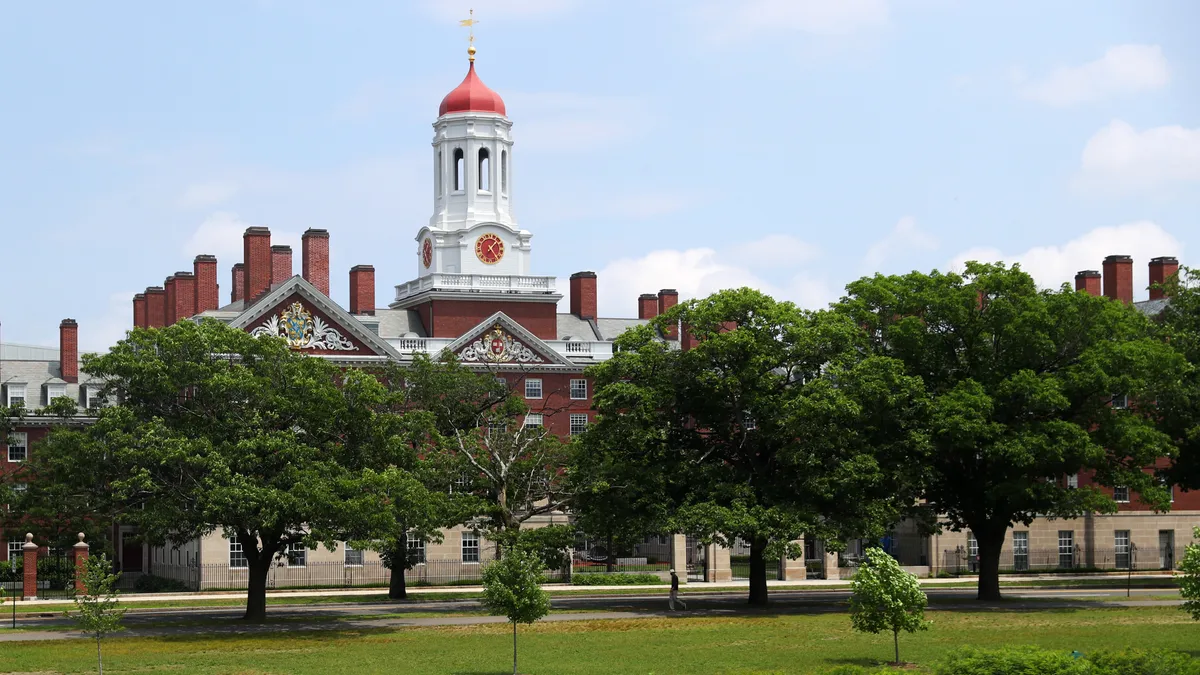Dive Brief:
- The percentage of Asian, Black, Latinx and White students referencing at least one race or ethnicity-related phrase in their Common Application essays decreased in 2023-24, the first full college application cycle since the Supreme Court decision last year barring race-conscious admissions, according to a study released in June by Common App.
- Overall, however, there were not any meaningful deviations from historical trends in students' application behaviors — including how they self-identify their racial or ethnic identity — in the 2023-24 application cycle on Common App, which allows students to apply to hundreds of institutions using a single form.
- The researchers from Common App set out to study application trends following the end of race-conscious admissions in June 2023. However, they found more meaningful shifts around the 2020 season, during the COVID-19 pandemic and the ensuing test-optional policy changes at many colleges.
Dive Insight:
The share of high-achieving racial or ethnic minority students applying to selective institutions has steadily and more steeply decreased since 2019-20 when compared to their nonminority peers, per the study of national application data from nearly six million domestic applicants over the past five years.
The Supreme Court’s ruling one year ago Saturday that overturned race-conscious admissions in Students for Fair Admissions v. Harvard and SFFA v. University of North Carolina may add an additional wrinkle to reversing that trend.
"We cannot say exactly how long or when policy impacts like this would ‘typically’ take to show in our application data, because how students, counselors, schools, and others respond to policy shifts is super context-dependent," said Brian Kim, lead researcher of the study and the director of data science, research and analytics for Common App. "It may take another year. it may be that some of the reaction to the policy has already occurred partially last year and this year, making it seem less apparent."
The 2023 decision on race-conscious admissions was expected to impact the pipeline of high school students into postsecondary education, as well as how educators and counselors approach the college application process. The decision also put pressure on the K-12 system to counteract the ruling by bolstering support for Black and Latino students.
The end of race-conscious admissions was anticipated to also lead to a 10% drop in Black and Hispanic enrollment at some higher education institutions, according to estimates from a California State University, Sacramento, study from 2009 based on similar bans of the practice in states.
Other studies found that statewide enrollment of racial or ethnic minority students slightly decreased following bans on race-conscious admissions, with larger declines at more selective institutions.
However, studies on whether the 2023 Supreme Court decision have had a direct impact on student applications and college admissions practices have been scant. "Much more study is required here," Kim said in an email.














